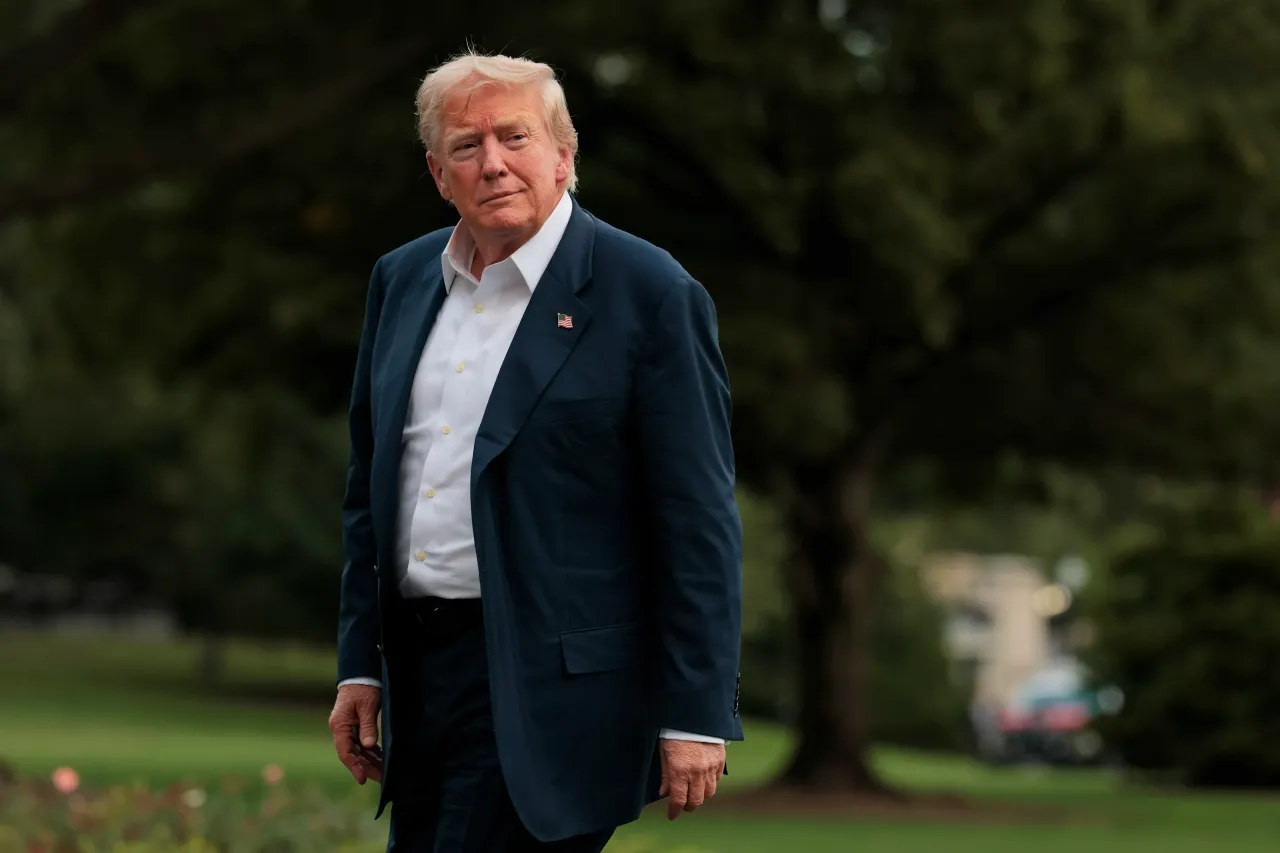‘You Just Can’t Do That’
New Delhi has reportedly conveyed to the U.S. specific items that it will not compromise on, including the prohibition on exports of genetically modified crops and the opening up of the domestic dairy and automobile industries.
India could face a tariff higher than the rate agreed upon for some of its Asian peers, even as negotiations between Washington and New Delhi progress toward the final stage.
Speaking aboard Air Force One while returning from a five-day visit to Scotland, President Donald Trump hinted at a 20%-25% rate that could apply to India, Bloomberg reported. He, however, clarified that the final rates have not been determined.
“India has been a good friend, but India has charged basically more tariffs than almost any other country,” Trump told reporters. “You just can’t do that.”
The stock market has shown little excitement over the trade deals the Trump administration has clinched with major trading partners, such as Japan and the European Union (EU).
On Tuesday, the S&P 500 Index, a measure of broader market performance, closed shy of its record high.
The SPDR S&P 500 ETF (SPY), an exchange-traded fund that tracks the performance of the S&P 500 Index, has risen 9% year-to-date, while the iShares MSCI India ETF (INDA) is up a more modest 1.6%.
The SPY was among the top five active tickers on Stocktwits late Tuesday, ahead of the big tech earnings and the Federal Reserve’s rate-setting meeting. Sentiment toward the ETF has moved into ‘extremely bullish’ territory as traders discussed the earnings season and geopolitical tensions.
The rate flagged by Trump aligned with the levy suggested by a Reuters report, which cited two government officials, stating that India was bracing for a 20%-25% tariff as part of a temporary agreement amid its unwillingness to make concessions on certain items.
The goal is to have a final, comprehensive deal in place by September or October.
While the “Liberation Day” tariffs were announced first on April 2, Trump imposed a 26% levy on exports from India, in addition to a 10% across-the-board baseline tariff. The implementation of the reciprocal tariff was subsequently paused for 90 days until July 9 and has since been extended to Aug. 1.
India was not among the recipients of a series of letters Trump sent to several major trading partners since the deadline extension, communicating revised tariffs.
Last week, Indian Commerce Minister Piyush Goyal expressed confidence that India would receive preferential treatment relative to its peers and competitors, reasoning that it was among the first countries to initiate trade deal negotiations with the U.S.
New Delhi has reportedly conveyed to the U.S. about specific items that it wouldn’t compromise on, including the disallowance of exports of genetically modified crops and the opening up of the domestic dairy and automobile industries. The country, however, was willing to allow zero tariffs on goods, such as auto parts and pharmaceutical products.
U.S. Trade Representative Jamieson Greer reportedly stated on Monday that Washington requires additional time to assess India’s willingness to open its market to American exports.
For updates and corrections, email newsroom[at]stocktwits[dot]com.
Get the daily crypto email you’ll actually love to read. It’s value-packed, data-driven, and seasoned with wit.


